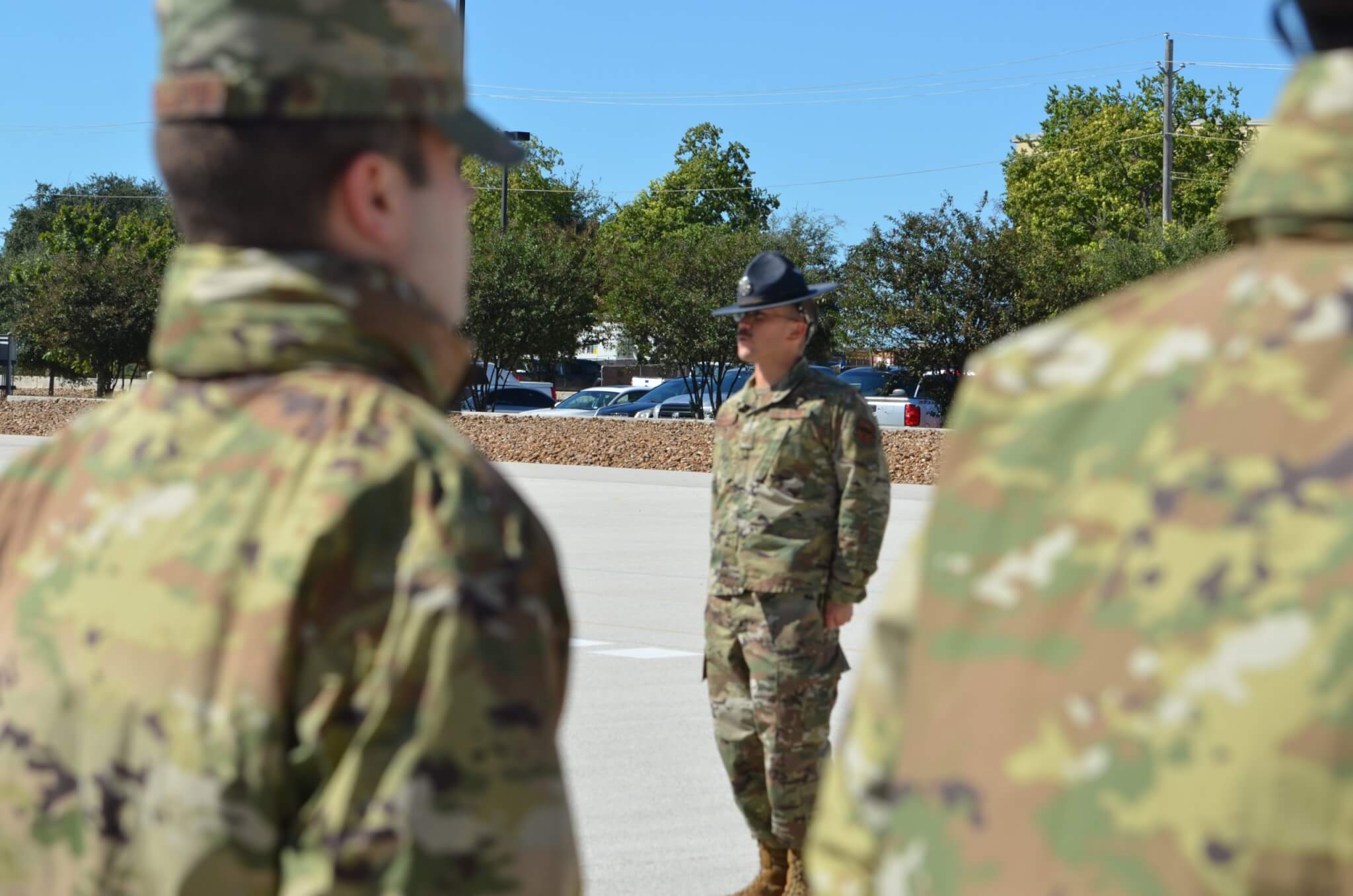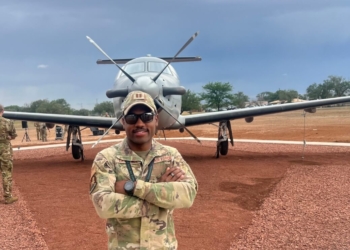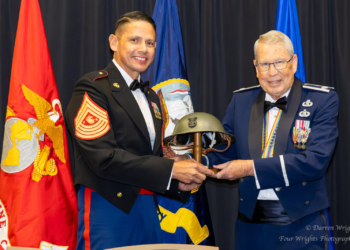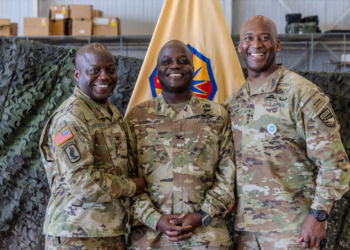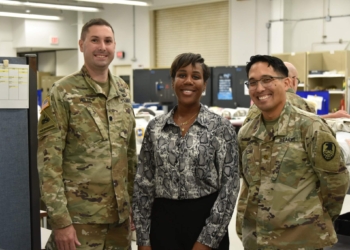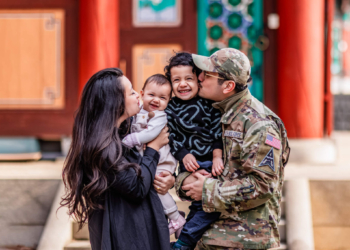I am an American airman.
Those five words are uttered by roughly 35,000 individuals each year as they prepare to graduate from the Air Force’s basic military training at Joint Base San Antonio–Lackland in Texas. The men and women charged with transforming everyday citizens have 8.5 weeks to challenge recruits mentally and physically, with the ultimate goal of shaping the next generation of warfighters. And the culmination of it all comes together on a parade deck, where countless hours of tasks have been performed and practiced, as military training instructors (MTIs) listen to new airmen recite the words of the creed they earned.
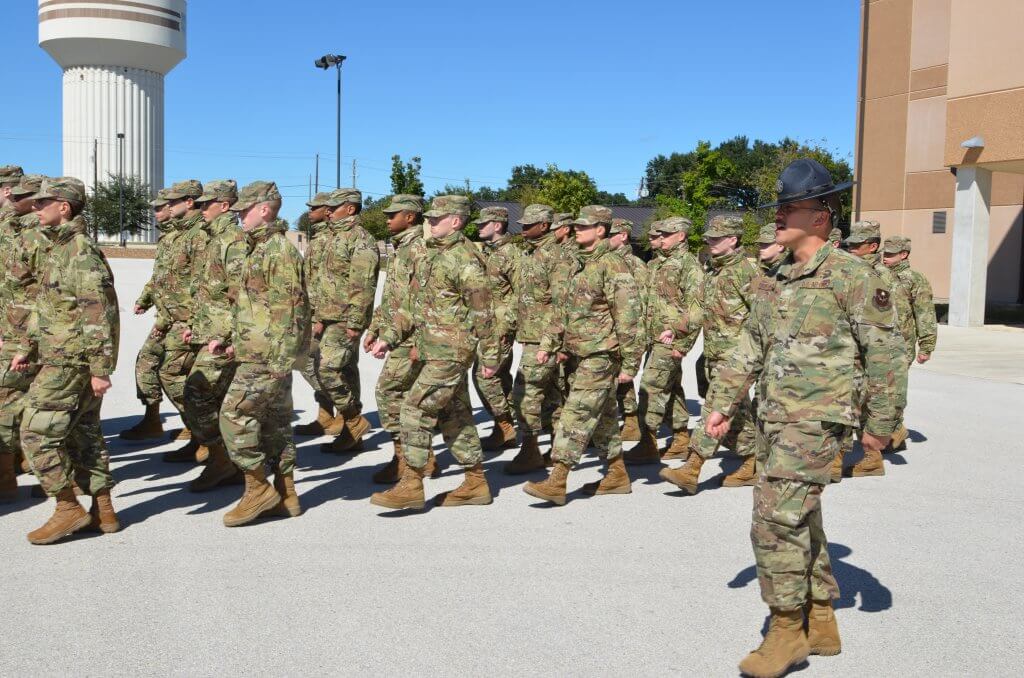
Tech. Sgt. Brandon Lucio-Stockwell, 31, is an MTI with the 320th Training Squadron — the same squadron he completed his own basic training with nearly 12 years ago. He says though some things have changed, one thing remains the same.
“ … as far as when you first show up, to me it seems to be a lot of the same shock and awe, just figuring out what’s going on. We focus on trying to get them (recruits) spun up and able to perform simple tasks so we can build a solid foundation to move onto other items. It’s a lot of controlled chaos,” he explained.
Serving as an instructor for more than a year now, he sees intersection between the major hurdle recruits and MTIs each face.
“The biggest challenge for the recruit becomes learning what true accountability really means,” Lucio-Stockwell said. “The same principle (applies to MTIs) but at a leadership level, because if you’re going to have somebody be accountable, you have to actually follow-up to make sure that they did what you asked them to do on that timeline. If you say, ‘do something in two minutes,’ and you don’t come back in two minutes, you lost a little bit of credibility. You’re no longer accountable in their eyes either.”
Training focuses on repetition, especially during the 45-minute PT sessions. Lucio-Stockwell says it takes time to adjust the body to the physical demands, but then comes the pride once recruits see their abilities transition.
“So, it’s getting used to it, embracing the suck, and then you get good at it. There’s a lot of pride at that point.”
He adds there is also a point between weeks four and five when recruits turn the corner in their training.
“They start functioning as a unit, a cohesive team; they are no longer just individuals and they take ownership of everything they have. That’s when they become proud of things like cleaning the latrine. They become proud of this floor — how immaculate it is. Up until then, it’s like the Karate Kid story where you’re questioning, ‘why am I doing this?’” he said.
He has encountered recruits who face self-doubt, reminding them of the reason they chose to become the “1% guarding 350 million people” of the nation. Reassurance, he says, helps put the objective back into focus.
But it’s not always the fresh out of high school kids standing before MTIs. In fact, Lucio-Stockwell says it is often the older recruits who leave a lasting impact on him.
“The best feeling I’ve ever had is, I’ve had a lot of young men and a lot of young women tell me thank you so much, you helped me make this change,” he said. “My biggest reward honestly is when I have those older trainees that joined — like I joined later, I was already 24 when I went to BMT — but they (older recruits) are already established mothers, fathers, teachers, whatever the case. And they tell me that I added value to their life.”
For MTIs, it’s all about that whole person concept, Lucio-Stockwell added.
Readying the family for Air Force life

Concurrent to graduation week events, family members also find themselves undergoing a transition. A number of resource organizations brief moms, dads, siblings, significant others, and spouses on what’s to come — including that first PCS move after initial orders are received.
Air Force veteran Grace Smith, who has been a military wife for 13 years, is part of the BMT Spouses Group that speaks to new spouses ahead of graduation. She started volunteering for the program in 2018.
“This program started five years ago to make sure they (spouses) are prepared and have the support and resources that they need. We give them information on military family readiness, Military OneSource; we also try to convey our personal story of what we’ve been through, to try to let them know we’ve been there. They can get it because we got through it,” Smith said.
Elizabeth Taylor, a spouse of nine years, explains key spouses should be the go-to resource for any new spouse.
“Your key spouse will be your first friend,” Taylor, a mom of two, said.
Because her husband was with the Ohio National Guard prior to MTI duty, she volunteered as a key spouse to adopt a larger role in military life.
“I grew up in the same place my entire life; we never PCS’ed so for me, I knew this was our one PCS. I wanted to get out and experience what active-duty spouse life was like. I wanted to volunteer, I wanted to help others that are new to this because it can be intimidating and overwhelming,” Taylor said.
Among the many duties volunteers take on, key spouses are responsible for coordinating family functions, resource sharing, and introducing new spouses to military life. Taylor says she hopes these briefs calm nerves, and she encourages them to get involved so they can have a successful military life.
“If you put yourself out there and you and your spouse work together to make it a good experience, it will be a good experience.”


